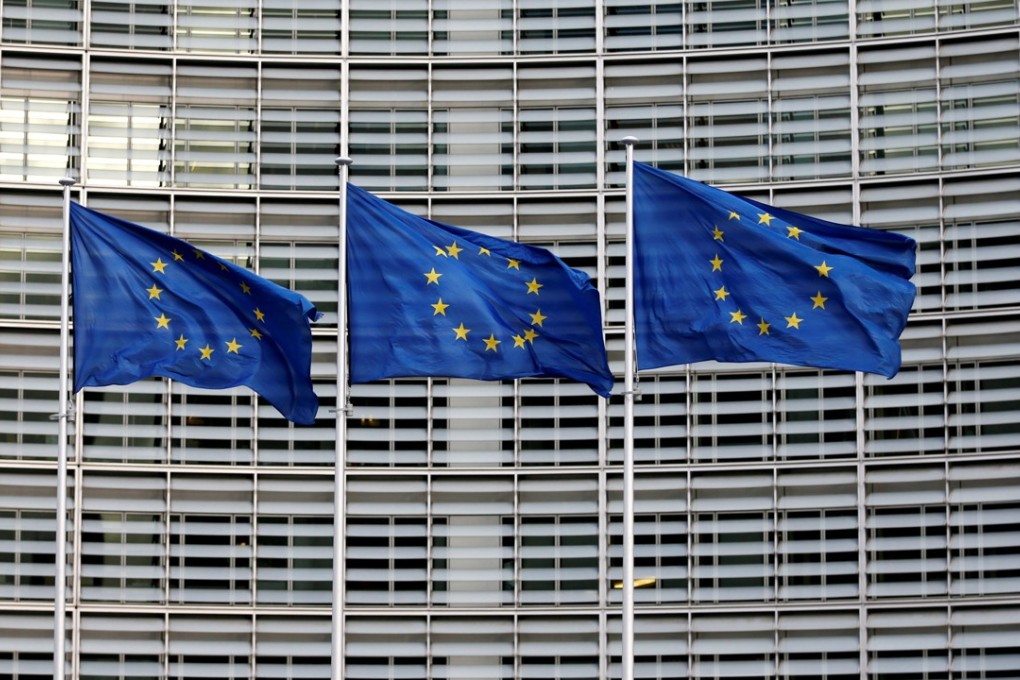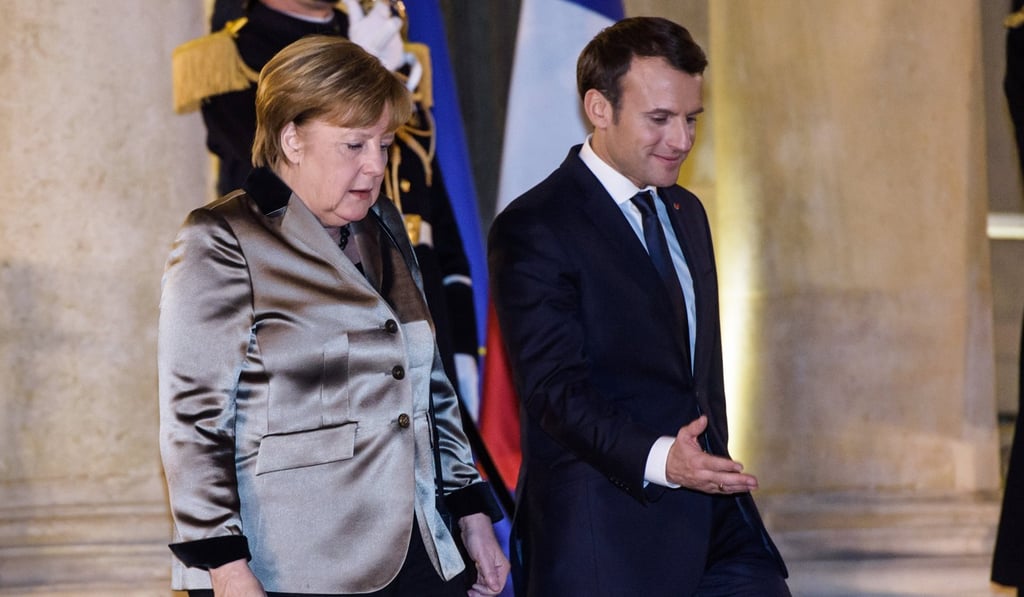Opinion | How the blame game is getting in the way of the European Union’s search for common ground
Analysis of commentaries on the recent euro zone crisis in four national newspapers reveals widely different views on whose fault it was

The European Union can act in unison at times – for example, on Russia sanctions or, at least so far, on Brexit. But as French President Emmanuel Macron and German Chancellor Angela Merkel try for a closer union in the next few years, they will need to be mindful of the fact that there is no single narrative among the publics in different European countries on matters of economic importance.
A recent paper for Bruegel, a Brussels-based think tank, vividly shows this by analysing coverage of Europe’s recent financial crisis by four important centrist newspapers: Germany’s Sueddeutsche Zeitung, France’s Le Monde, Italy’s La Stampa and Spain’s El País. The total data set encompassed 51,714 news stories. The researchers – Henrik Mueller and Gerret von Nordheim from Dortmund University and Bruegel’s Giuseppe Porcaro – fed them to a content analysis algorithm and then analysed the results to construct generalised narratives. Their focus was on how blame for the crisis was attributed.
They found that only El País consistently attributed blame to Spain itself for its financial troubles during the euro crisis. “In Spain, the connection between the global financial crisis, the local housing bubble and the mismanagement of a previous period of impressive growth was more visible,” Porcaro explained to me.
As one might expect, Sueddeutsche Zeitung blamed the crisis on a departure from the traditional German social market economic model. Everyone except Germany seems to have contributed, according to the Munich paper – from greedy financial market players to financially imprudent Greeks to the European Central Bank with its loose monetary policy.
Le Monde, too, blamed the banks and speculators, but also German intransigence in handling the indebted southern Europeans. And La Stampa focused on Italy’s role as a victim of circumstance, namely globalisation and German-imposed austerity. Banks and financiers didn’t get much attention as culprits from the Italian newspaper, but the Italian political system and government did get some blame, as in Spain. Le Monde and La Stampa, according to the Bruegel paper, both “embrace a sense of desperation that goes far beyond purely economic considerations but calls into question the entire political system and social fabric.”

